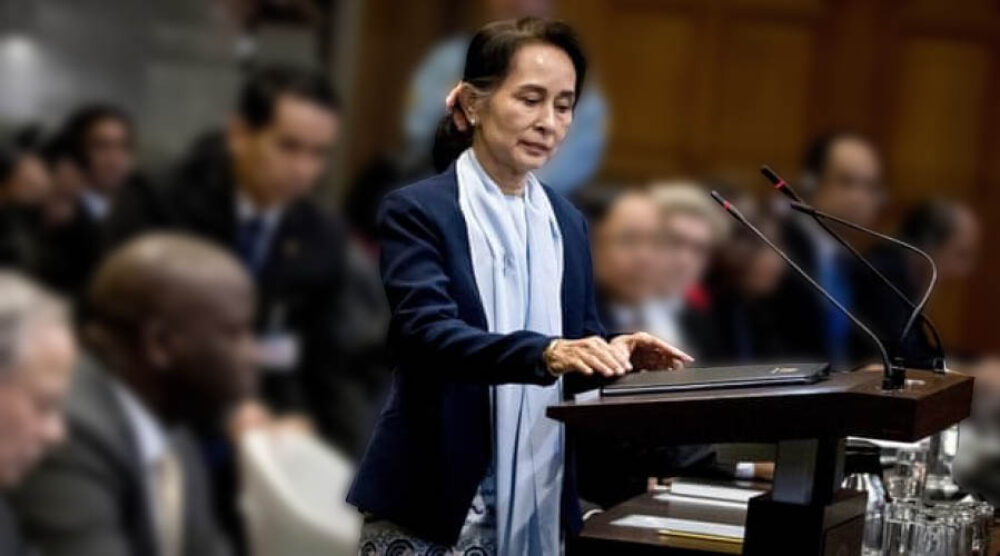This week, the world was treated to an extraordinary sight. Aung San Suu Kyi, the Nobel Peace Prize winner once hailed as “the bravest and most moral person in the world … the immaculate heroine who allows us all to feel a little better about human nature”, sat in the International Court of Justice (ICJ) in The Hague and defended her country against charges of genocide.
The brutal “clearance operations” by Myanmar’s security forces against the Muslim Rohingya population in Rakhine State between October 2016 and the end of 2017 have been extensively documented by governments and international organisations. In 2018, for example, an independent UN fact-finding mission released a 444-page report that described in horrific detail case after case of murder, torture, sexual assault and the destruction of property by the armed forces (known as the Tatmadaw) and the police.
The UN Human Rights Council stated that these operations demonstrated “genocidal intent”. A more politically nuanced US State Department investigation conducted at the same time stopped short of calling the atrocities in Myanmar genocide, but recorded broadly similar findings.
Please click here to read the full “Aung San Suu Kyi: Why defend the indefensible?” article published at The Interpreter, written by Griffith Asia Institute Adjunct Professor Andrew Selth.








